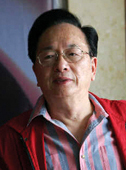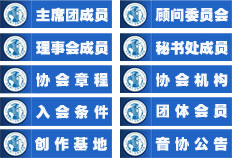
陈钢(1935—),回族,出生于上海。早年,他即师从于父亲陈歌辛和匈牙利钢琴家瓦拉学习作曲和钢琴。1955年考入上海音乐学院后,他又师从于丁善德院长和苏联音乐专家阿尔扎马诺夫学习作曲与理论。早在求学期间,他即以其与何占豪合作之小提琴协奏曲《梁祝》蜚声中外乐坛。这首流传最广的中国交响乐作品曾先后荣获五次金唱片与白金唱片奖。此外,他还创作了小提琴独奏曲《苗岭的早晨》、《金色的炉台》、《阳光照耀着塔什库尔干》、《恩情》和小提琴协奏曲《王昭君》等,都成为著名的中国小提琴音乐文献。他还创作了中国第一首竖琴协奏曲和第一首双簧管协奏曲。陈钢的作品还有交响诗、大合唱和室内乐合奏等。
Chen Gang (1935 -), the Hui nationality, was born in Shanghai. In his early years, he is learning from his father Chen Gexin and Hungarian pianist Vala studied composition and piano. Admitted to Shanghai Conservatory Of Music in 1955, he was apprenticed to Ding Shande Dean and the Soviet Union experts Al Zama Andrianof learning music theory and composition. Early in the study period, he that cooperation with its He Zhanhao Violin Concerto "the Butterfly Lovers" renowned Chinese and foreign music. This song the most widely circulated China symphonic works has won five gold and platinum awards. In addition, he also wrote violin solo "morning of Miao mountain", "golden table", "shining Tashikuergan", "kindness" and Violin Concerto "Wang Zhaojun" and so on, have become famous Chinese violin music literature. He also wrote China first Harp Concerto and the first Oboe concerto. Chen Gang's works and symphonic, choral and chamber music.


